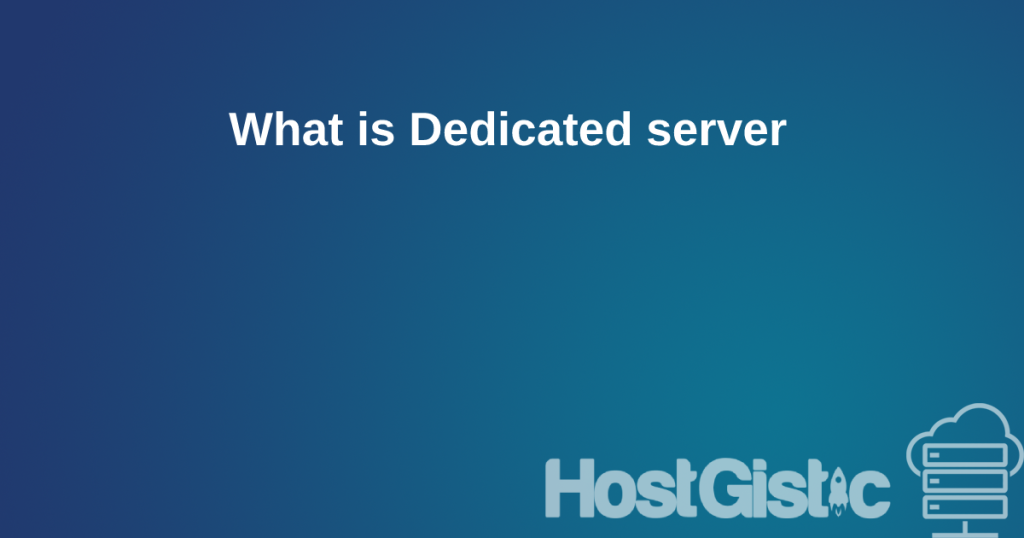Introduction
In the digital era we live in, having a website is no longer a luxury, but a necessity for individuals and businesses alike. Whether you’re looking to start a blog, showcase your portfolio, establish an online store, or create a digital presence for your business, it all begins with a website. But before you can make your mark on the World Wide Web, you need to get acquainted with one crucial aspect: web hosting. In this comprehensive guide, we will unravel what web hosting is, how to host a website, and how much web hosting costs. So, let’s embark on this enlightening journey together.
Part 1: What is Web Hosting?
Web hosting is a service that allows individuals, businesses, or organizations to make their websites accessible on the internet. But let’s break that down further for a better understanding.
1.1 Web Hosting Simplified
Consider your website as a brick-and-mortar store. To build this store, you need a plot of land. This plot can be leased (rented) or bought. Similarly, to create your website, you need some ‘land’ on the internet where your site’s files can be stored and accessed. Web hosting services provide this digital ‘land’.
To look at it from a more technical perspective, web hosting services offer space on a server (which is a powerful computer), and this server is either owned or leased for use by clients. Along with this, they provide internet connectivity so your website can be accessed from anywhere in the world. This server space and connectivity are what make it possible for users to reach your website when they type in your web address or click on a link to your site.
1.2 The Role of a Web Host
Web hosts are companies that offer web hosting services. They own and maintain servers, and rent out or sell this server space to clients who want to host their websites. In addition to providing server space, web hosts also offer a range of services such as website building tools, email hosting, SSL certificates, technical support, and more, to help you manage your online presence.
Part 2: How to Host a Website?
Now that we understand what web hosting is, let’s delve into the next question: how to host a website? There are primarily three methods to host a website: shared hosting, dedicated hosting, and VPS hosting. We’ll explore each of these in detail.
2.1 Shared Hosting
Shared hosting is the most economical option, where multiple websites share the same server and its resources such as CPU, RAM, and disk space. This method is akin to living in a dormitory, where you share a room with others and utilize the same amenities.
While shared hosting is an affordable choice, especially for beginners and small businesses, it has a potential drawback. If a website on the server experiences a sudden traffic surge, it could consume more resources, causing other websites (including yours) to load slower. However, many hosts monitor their shared servers to avoid such scenarios.
2.2 Dedicated Hosting
Dedicated hosting is the equivalent of having your own house. Your website has an entire server to itself, providing it with more power and space. It offers higher performance, more security, and gives you total control over the server settings and configurations.
But all this comes at a cost, making dedicated hosting a more expensive option. It’s ideally suited for large businesses and high-traffic websites that require substantial resources and advanced customization.
2.3 VPS Hosting
VPS or Virtual Private Server hosting is a middle ground between shared and dedicated hosting. Imagine living in a condominium, where you share the building with others, but you have your own unit with its own resources.
In VPS hosting, the server is divided into virtual servers, each acting as a separate entity with its own operating system, resources, and settings. Even though you’re technically sharing a server, you have your own dedicated portion, leading to better performance and reliability than shared hosting. And while VPS hosting is more costly than shared hosting, it’s significantly less expensive than dedicated hosting.
Part 3: How Much Does Web Hosting Cost?
Once you’ve decided on the type of hosting that suits your needs, the next question that comes up is, “How much does web hosting cost?” The cost of web hosting can range widely depending on the hosting type, plan, and additional features.
3.1 Free Hosting
Free hosting is a viable option if you’re creating a personal website or a small project and are not bothered by limitations or advertisements. However, for professional websites or businesses, free hosting may not be suitable as it often lacks the necessary features, performance, and support.
3.2 Shared Hosting
Shared hosting is generally the most affordable paid option, typically ranging from $2 to $15 per month. The cost depends on various factors, such as the amount of storage, bandwidth, the number of websites you can host, email accounts, and more. Many shared hosting providers offer tiered plans, allowing you to upgrade as your website grows.
3.3 VPS Hosting
VPS hosting plans usually start from around $20 per month and can go up to $100 or more. The cost is influenced by the resources allocated to your virtual server, such as CPU, RAM, and storage, as well as additional features like managed services and premium support.
3.4 Dedicated Hosting
Dedicated hosting is the most expensive option, with plans typically starting from around $80 and going up to $200 or even more per month. The cost depends on the server configuration (CPU, RAM, storage, etc.), bandwidth, and other premium features.
Part 4: Additional Factors Affecting Web Hosting Costs
Beyond the type of hosting, there are other factors that can affect your web hosting costs.
4.1 Bandwidth
Bandwidth refers to the amount of data your website can transfer to your users in a given time. Websites with high traffic or data-heavy content (like videos and images) require more bandwidth. Higher bandwidth plans are often priced more.
4.2 Storage
Storage is the amount of space that you have on the server to store your website files. Websites with lots of content, like large images or videos, require more storage space. More storage typically means a higher cost.
4.3 Additional Features
Features like a custom domain name, email hosting, backup and restore services, SSL certificates, advanced security measures, eCommerce tools, website builders, and 24/7 customer support can also add to the cost.
Conclusion
In this comprehensive guide, we’ve explored the fundamental aspects of web hosting, how to host a website, and the costs involved. While it might seem daunting initially, understanding these elements is crucial to your website’s success. Remember, the best web hosting for your needs depends on your website’s size, traffic, budget, and growth projections.
FAQs
1. What is web hosting? Web hosting is a service that allows individuals or businesses to make their website accessible on the internet.
2. How to host a website? You can host a website by choosing a web hosting provider and selecting a plan that suits your needs. The main types of hosting are shared, dedicated, and VPS hosting.
3. How much does web hosting cost? Web hosting can range from free to hundreds of dollars per month, depending on the hosting type and additional features.
Have more questions about web hosting? Feel free to reach out to us or drop a comment below!



